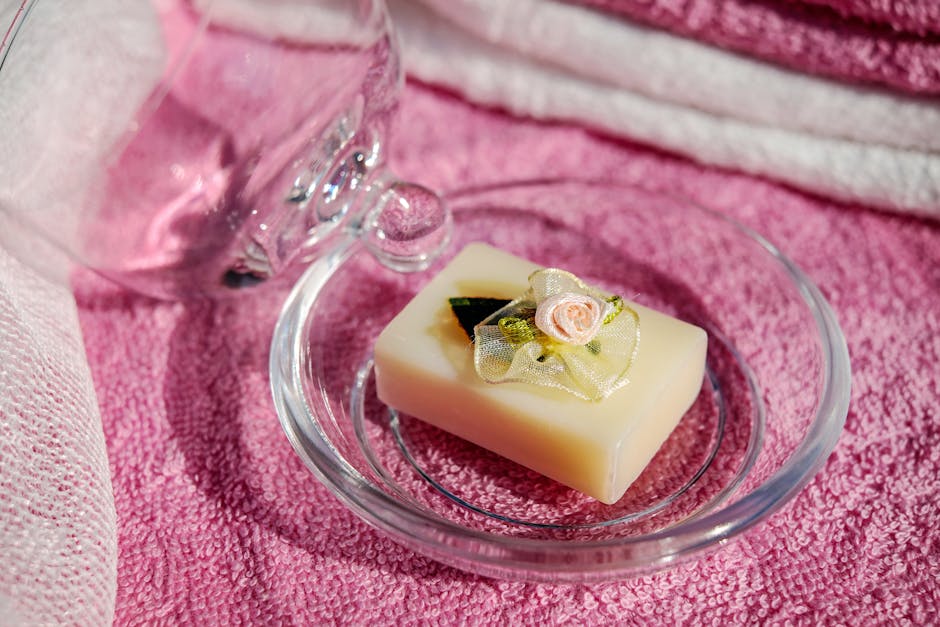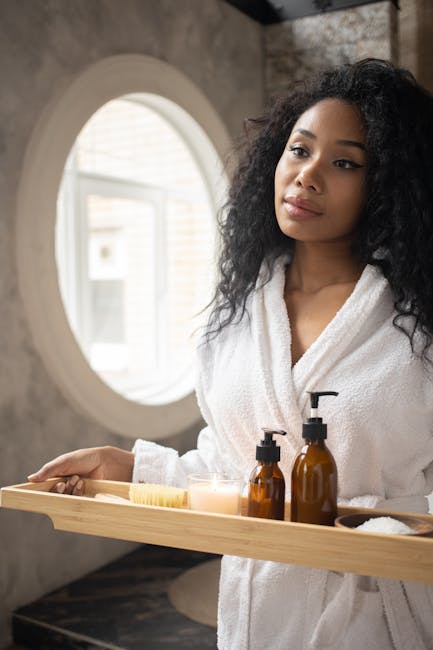Aromatherapy, a holistic healing treatment that uses natural plant extracts to promote health and well-being, has been gaining popularity for its potential to enhance both physical and mental health. But what exactly is aromatherapy and how does it work? This blog post will delve into the fascinating world of aromatherapy, exploring its origins, mechanisms, benefits, and even its application in pet care.
Key Takeaways
- Aromatherapy uses essential oils to stimulate the senses and promote well-being.
- The practice has a rich history, dating back to ancient civilizations.
- Essential oils play a crucial role in aromatherapy, each offering unique benefits.
- Aromatherapy can enhance both physical health and mental well-being.
- Pets can also benefit from aromatherapy, but safety considerations must be taken into account.
- Choosing high-quality essential oils and understanding the limitations of aromatherapy are key to safe and effective use.
Introduction to Aromatherapy
Definition and core principles
Aromatherapy, also known as essential oil therapy, is a holistic healing treatment that uses natural plant extracts to promote health and well-being. It’s based on the principle that certain scents, typically derived from plants, can trigger positive responses in the brain, leading to physical and emotional benefits.
Brief history of aromatherapy
Ancient uses across cultures
The use of aromatic plant components for therapeutic purposes can be traced back thousands of years to ancient civilizations such as Egypt, China, and India. These cultures recognized the power of aromatic plants and used them in various ways, including in religious rituals, for medicinal purposes, and even for personal hygiene.
Evolution into modern wellness practices
Over time, the practice evolved and became more refined, eventually leading to the development of modern aromatherapy. Today, aromatherapy is recognized as a complementary therapy within holistic health practices, offering a natural, non-invasive way to enhance well-being.

How Aromatherapy Works
The role of essential oils in aromatherapy
Commonly used essential oils and their benefits
Essential oils, the heart of aromatherapy, are concentrated plant extracts that capture the plant’s scent and flavor, or “essence.” Each essential oil has unique properties and benefits. For example, lavender is known for its calming effects, while peppermint is often used for its invigorating and cooling properties.
Mechanism of action
Stimulation of smell receptors
When you inhale the aroma of an essential oil, the scent molecules travel through your nose and interact with your smell receptors. These receptors send signals to your brain, specifically to the olfactory system, which is involved in smell perception.
Impact on the limbic system
The olfactory system is closely linked to the limbic system, a part of the brain that plays a role in emotions, behaviors, and memory. This connection explains why certain smells can trigger strong emotions or memories, and it’s this mechanism that aromatherapy taps into to promote well-being (source).

Benefits of Aromatherapy
Physical health improvements
Pain management
Aromatherapy can be a useful tool in managing pain. Certain essential oils, such as lavender and peppermint, have analgesic properties that can help alleviate pain.
Immune system support
Some essential oils, like tea tree and eucalyptus, are known for their antimicrobial and immune-boosting properties, potentially offering support for the immune system.
Enhanced sleep quality
Essential oils like lavender and chamomile are often used to promote relaxation and improve sleep quality, making aromatherapy a popular choice for those struggling with sleep issues.
Mental and emotional well-being
Stress and anxiety relief
Aromatherapy is often used as a natural remedy for stress and anxiety. Scents like lavender, ylang-ylang, and bergamot are known for their calming effects, helping to soothe the mind and promote relaxation.
Cognitive enhancement and mental clarity
Certain essential oils, such as rosemary and peppermint, are believed to stimulate cognitive function and promote mental clarity. This makes aromatherapy a potentially useful tool for those seeking to enhance their mental performance.
Focus and concentration
Aromatherapy can also help improve focus and concentration. Citrus scents, like lemon and orange, are often used for their uplifting and energizing effects, which can help boost productivity and focus.

Aromatherapy for Pets
Similarities in benefits for humans and pets
Stress and anxiety relief
Just like in humans, aromatherapy can help alleviate stress and anxiety in pets. Certain scents, such as lavender, can have a calming effect on animals, helping them relax in stressful situations.
Immune system support
Some essential oils may also support the immune system in pets, much like they do in humans. However, it’s important to consult with a veterinarian before using essential oils on or around pets, as some oils can be harmful to animals.
Digestive health
Certain essential oils, like ginger and peppermint, can potentially aid in digestive health for pets, helping to alleviate symptoms like nausea and upset stomach.
Safety considerations and consultation with a veterinarian
While aromatherapy can offer benefits for pets, it’s crucial to use it safely. Some essential oils can be toxic to pets, so it’s important to consult with a veterinarian before introducing aromatherapy into your pet’s routine (source).
Choosing Aromatherapy Treatments and Products
Importance of selecting high-quality essential oils
Identifying reputable providers
When it comes to aromatherapy, the quality of the essential oils used is paramount. It’s important to choose oils from reputable providers who prioritize purity and quality in their products.
Safety and side effects
Potential allergic reactions and skin irritation
While essential oils are generally safe for most people when used correctly, they can cause allergic reactions or skin irritation in some individuals. It’s always a good idea to do a patch test before using a new essential oil.
Consulting healthcare professionals for personalized advice
Before starting any new treatment, including aromatherapy, it’s important to consult with a healthcare professional. They can provide personalized advice based on your health history and current medications.
Debunking unproven claims
Understanding conditions effectively treated by aromatherapy
While aromatherapy can offer many benefits, it’s important to understand that it’s not a cure-all. It can be a helpful tool in managing certain conditions and enhancing well-being, but it should not replace conventional medical treatment.
Importance of evidence-based practices
As with any health practice, it’s important to rely on evidence-based information. While there’s a growing body of research supporting the benefits of aromatherapy, more studies are needed to fully understand its effectiveness and safety (source).
Aromatherapy offers a natural, non-invasive way to enhance well-being, making it a valuable tool in the realm of holistic wellness. Whether you’re looking to improve your physical health, boost your mental performance, or even enhance your pet’s well-being, aromatherapy may be worth exploring. Just remember to choose high-quality essential oils and consult with a healthcare professional to ensure safe and effective use.
Soothing Scents: Your FAQ Guide to the Role of Aromatherapy in Enhancing Well-being
What exactly is aromatherapy and how does it work?
Aromatherapy is a holistic healing treatment that uses natural plant extracts, often in the form of essential oils, to promote health and well-being. It works through the sense of smell and skin absorption using products like diffusers, aromatic spritzers, inhalers, bathing salts, body oils, creams, or lotions for massage or topical application. The inhaled aroma from these essential oils is believed to stimulate brain function, while skin absorption can directly affect the body’s systems, promoting whole-body healing.
Can aromatherapy actually improve my health?
Yes, aromatherapy can improve health in several ways. It’s known to reduce anxiety, ease depression, boost energy levels, speed up the healing process, eliminate headaches, boost cognitive performance, induce sleep, strengthen the immune system, reduce pain, and improve digestion. However, it’s important to note that while aromatherapy can support health and well-being, it should not replace medical treatment for serious conditions.
What are the most popular essential oils and their benefits?
Lavender is renowned for its stress-relieving and sleep-inducing properties. Peppermint can boost energy and aid digestion. Eucalyptus has a refreshing effect and can help relieve congestion. Tea tree oil is known for its antimicrobial and anti-inflammatory properties, making it great for skin issues. Lemon oil is uplifting and can help to detoxify and rejuvenate energy. Each essential oil has its unique benefits, so exploring various oils can help you find the best match for your needs.
How do I choose the right essential oils?
Choosing the right essential oils depends on the benefits you’re seeking. Start by identifying your health concerns or desired mood enhancement. Research or consult with an aromatherapist to find oils that match your needs. Quality is crucial, so look for pure, organic, and ethically sourced oils. It’s also wise to start with a small selection of oils to see how your body responds before expanding your collection.
Are there any risks associated with aromatherapy?
While aromatherapy is generally safe, it can pose risks if oils are used improperly. Some essential oils can be irritating or cause allergic reactions when applied directly to the skin, so it’s important to dilute them with a carrier oil. Certain oils are not recommended for pregnant or breastfeeding women, and some can interact with medications. Always do a patch test before using a new oil and consult with a healthcare provider if you have any concerns.
How can I incorporate aromatherapy into my daily routine?
Aromatherapy can be easily incorporated into your daily life. Start your day with an invigorating shower using products infused with essential oils like peppermint or lemon. Use a diffuser with calming oils like lavender or chamomile in your living space to create a relaxing atmosphere. For stress relief at work, keep a rollerball with your favorite blend handy. Before bed, add a few drops of a sleep-inducing oil to your pillow or use a diffuser in your bedroom to promote restful sleep.
Can aromatherapy help with stress and anxiety?
Yes, aromatherapy is particularly effective for managing stress and anxiety. Essential oils like lavender, chamomile, and frankincense are known for their calming and relaxing properties. These oils can help soothe the mind, reduce stress levels, and promote feelings of relaxation and peace. Using these oils through diffusers, personal inhalers, or in a bath can provide a natural and gentle way to alleviate anxiety.
Is aromatherapy beneficial for sleep disorders?
Aromatherapy can be highly beneficial for individuals with sleep disorders. Essential oils such as lavender, vetiver, and Roman chamomile have sedative properties that can help calm the mind and prepare the body for sleep. Incorporating these oils into your bedtime routine, through aromatherapy baths, diffusers, or direct application (properly diluted), can improve the quality of sleep and help regulate sleep patterns over time.



